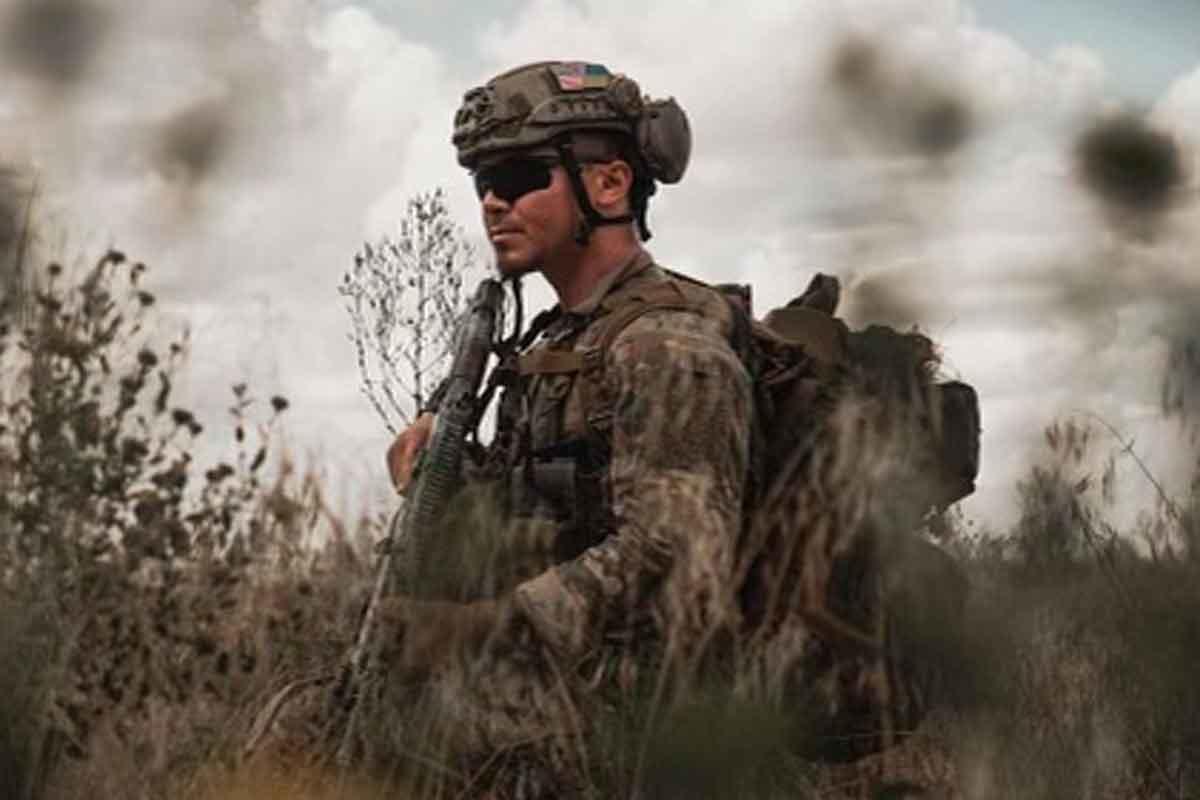
The family of a Marine veteran who died fighting in Ukraine last month is facing the daunting task of repatriating his remains, an often heartbreaking endeavor that roughly 30 families of American veterans who have died in Ukraine have undergone or are currently undergoing.
Ethan Hertweck, 21, died in Ukraine on Dec. 8, according to his parents, nearly two weeks before he was scheduled to return home to Springfield, Missouri, after his second trip to volunteer in the country currently under brutal invasion by Russia since early 2022.
Hertweck initially left the U.S. just weeks after Russia invaded Ukraine, finding a calling for what his parents described as a lifelong desire to help those in need. The Marine veteran, who trained in Ukraine as a medic, joined a unit that ended up deep in the front lines, and Hertweck died during what would have been his last mission in the country.
A month later, his family is in the midst of what has proven to be a months-long process for many families, friends and loved ones who have lost former American service members to the conflict in Ukraine.
“The Ukrainian government has laws that are not like our laws, so now we have to sit and wait,” Leslie Hertweck, his mom, told Military.com on Tuesday. “It’s the hardest thing for closure. … We just want closure, we just want to be able to have his military service, and we can’t really do any of that.”
Leslie, who was accompanied in the interview by her husband John, told Military.com that she has been in contact with the U.S. Embassy in Ukraine. The family also said they are working with a nonprofit organization, the R.T. Weatherman Foundation, to help repatriate Ethan’s remains from the war zone.
Other families, like that of Special Forces veteran Nick Maimer, waited more than three months for his remains to return to the U.S., a process that included a hand-off between the Russian private military company, the Wagner Group; DNA tests for identification; and international red tape that has become commonplace as the war drags on and volunteers have died in the conflict.
Some families are still waiting, as the process has proven to take months. According to a GoFundMe page Ethan’s family set up, he died while rendering aid to another volunteer. News reports citing fellow volunteers said that he died in Avdiivka, a town north of Donetsk that is occupied by Russia.
“During an attack by enemy forces, he went back to save a wounded soldier, resulting in fatal injuries to himself,” the GoFundMe page said. “Ethan still rendered aid until he ultimately passed.”
Like many veteran volunteers who flocked to Ukraine after Russia’s invasion, Ethan wanted to help the sovereign country amid discontentment with sitting on the sidelines in what appeared to be a David vs. Goliath struggle.
According to his family, Ethan spent seven months in the Marine Corps as an enlisted infantry Marine before being honorably discharged in 2020 due to a rare blood disorder, a blow for the man who had wanted to serve since he was a kid that led him to be “not content” or “happy” in civilian life, his mother said.
“He wasn’t content here, and he knew his heart was there, to help and to fight to help save lives,” Leslie told Military.com. “So, he went over there.”
Two weeks after Russia’s renewed invasion of Ukraine, Ethan went to Europe to help displaced people fleeing the country, to include those who may have been victims of human trafficking, his family said. He then spent a year home before returning in March, when he trained as a combat medic.
It was after Thanksgiving that Ethan told his parents he was going to the front line, something that made his parents feel “a little scared,” according to Leslie.
“We were just trusting that he was going to be safe and knowing his skills and what he was doing,” Leslie said, “I felt scared, but still trusting he would be fine.”
On Dec. 11, three days after Ethan was killed, Leslie got a call from the U.S. Embassy in Ukraine notifying her that her son had been killed.
“I had a feeling because our son had told us if anything happened we would get a call from Ukraine,” Leslie said, adding that she had initially missed the first call because it had come from a blocked number. “And then I went out in the hallway of my work, and that’s when I called the number back and when I was told it happened.”
Now, as well-wishes from those Ethan served with pour in, the family is looking for closure.
“He saved people … from incoming Russian bombs,” Leslie said Ethan’s comrades told her. “We’re told he ran and was saving civilians he didn’t even know, because that’s just who he was … that’s how he wanted to serve, to help save lives.”
Related: Wagner Handoff, DNA Tests: Remains of Special Forces Vet May Finally Be Coming Home from Ukraine









